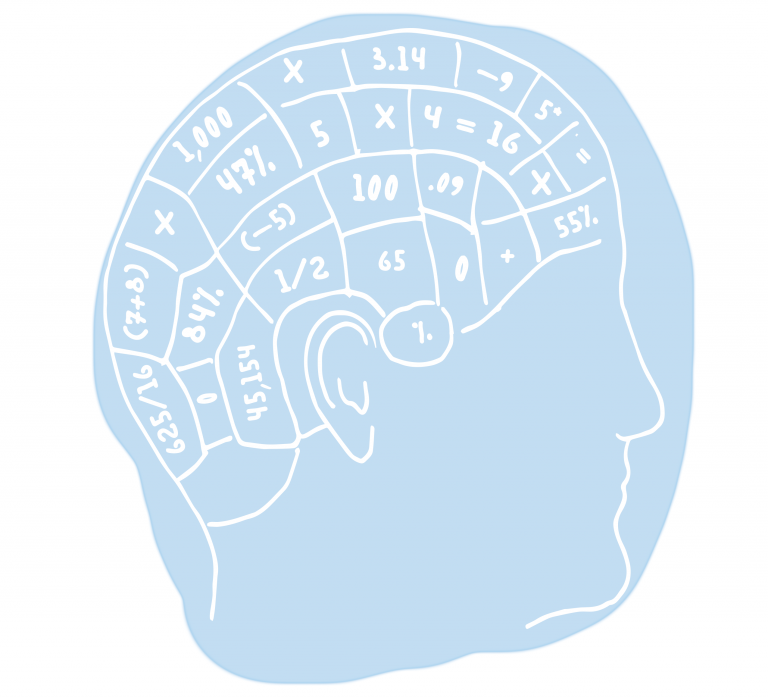In psychology, data is everything. Without data, it’s difficult to quantify findings that lead to more effective care and positive outcomes. Making data actionable requires the insights of a savvy psychologist with a background in data science who can help others understand what data is truly saying about human behavior—and what it could mean going forward.
 Data science—particularly research methods and statistics—enables psychologists to dig deeply into important challenges we face in today’s society. To drive change effectively, psychologists must know how to conduct laboratory or field experiments. Doing so creates data to support evidence-based strategies that help people tackle barriers and live more comfortable and satisfying lives.
Data science—particularly research methods and statistics—enables psychologists to dig deeply into important challenges we face in today’s society. To drive change effectively, psychologists must know how to conduct laboratory or field experiments. Doing so creates data to support evidence-based strategies that help people tackle barriers and live more comfortable and satisfying lives.
However, data’s reach extends far beyond traditional psychological applications. Consider the psychologist who analyzes data to design more appropriate teaching methods for students with learning disabilities. Or one who conducts research to understand the best marketing strategy for a business. Or perhaps one who examines human responses to natural and technological hazards to better understand why people do or do not conserve resources or why and how diseases spread. Without data, developing solutions to address these challenges would be nearly impossible.
Advancing Your Psychology Career Using Data Science
Data science skills in psychology are not only in-demand, but they also yield lucrative salaries. Consider the following high-paying psychology jobs that benefit from a degree in data science:
- Industrial/organizational (I/O) psychologist. These individuals use data analyses to help companies make more informed decisions. They provide insight not only into trends and patterns in the data but also human behavior related to that data, helping to address workplace issues that affect individuals, teams, and organizations. The national average salary for an I/O psychologist is $105,000, according to AllPsychologySchools.com. In 2021, the Bureau of Labor Statistics reported a mean salary of $113,000 for I/O psychologists. Those who are self-employed consultants earn the most, followed by those working in pharmaceuticals and private sector healthcare.
- Research psychologist. These individuals collect and manipulate data to investigate psychological issues related to perception, memory, learning, personality, and cognitive processes. They also analyze test results using statistical techniques and collaborate with other scientists to formulate theories. According to Glassdoor.com, the national average salary for a research psychologist is $103,000; ZipRecruiter.com reports it at $86,000.
- Neuropsychologist. These individuals study behavior and brain function using imaging techniques and behavioral assessments. According to Indeed.com, the national average salary range for a neuropsychologist is $87,000 to $237,000.
- Forensic psychologist. These individuals conduct research related to the criminal justice system, helping with jury selection or mental state examinations of criminal defendants. Often times, forensic psychologists are focused on determining why a certain type of person commits crimes and how to prevent those crimes from happening in the future. According to Indeed.com, the national average salary for a forensic psychologist is $104,000.
Learn more about our 100% online degree and certificate programs.![]()
Get Program Guide
Intersection of Data Science and Psychology
Big data has permeated many academic disciplines, and psychology is no exception. As data continues to proliferate due to technological advances, psychologists with a background in data science, research methods, and statistics can help articulate why certain patterns and trends may occur. They may also be able to explain how technology continues to shape human behavior.
For instance, take the study of Computers as Persuasive Technology, better known as “Captology.” Coined by Dr. B.J. Fogg, this term describes the manner in which we “…use computers to interact with people and attempt to influence them to change their attitudes or behaviors” (Fogg, 2002). With technology now occupying every corner of the world, we are all susceptible to its overreach.
In an article from Trust Technical Services, Issam Wadi writes that technology such as this permeates our politics, education, organizations, behavioral sciences, and more. We also see this on a micro-level in our day-to-day lives: advertisements persuading you to purchase that soap you never liked but will now buy because your favorite celebrity endorses it, or your favorite video game making you think differently about how you see the world through their lens. Through the intersection of technology and persuasion, there is an indefinite change in human behavior and attitudes toward the world around us.
The Need for Data Science Professionals in Psychology
Data science professionals in psychology are essential. These professionals can help ensure data governance, proper data mapping, and suitable data application. They will increasingly be in demand as employers seek to capitalize on the inherent insights of big data. What are the trends, and why? How can various business sectors respond accordingly? Psychologists with data science skills can help find the answers.
For more information about data science, explore the Universities of Wisconsin Master of Science in Data Science website or speak with an enrollment adviser at 608-262-2011 or learn@uwex.wisconsin.edu.
More Data Science Stories
The Story of Moneyball Proves Importance of Both Big Data and Big Ideas
Can I be a Data Scientist? Healthcare Analytics in Health Information Management and Technology









